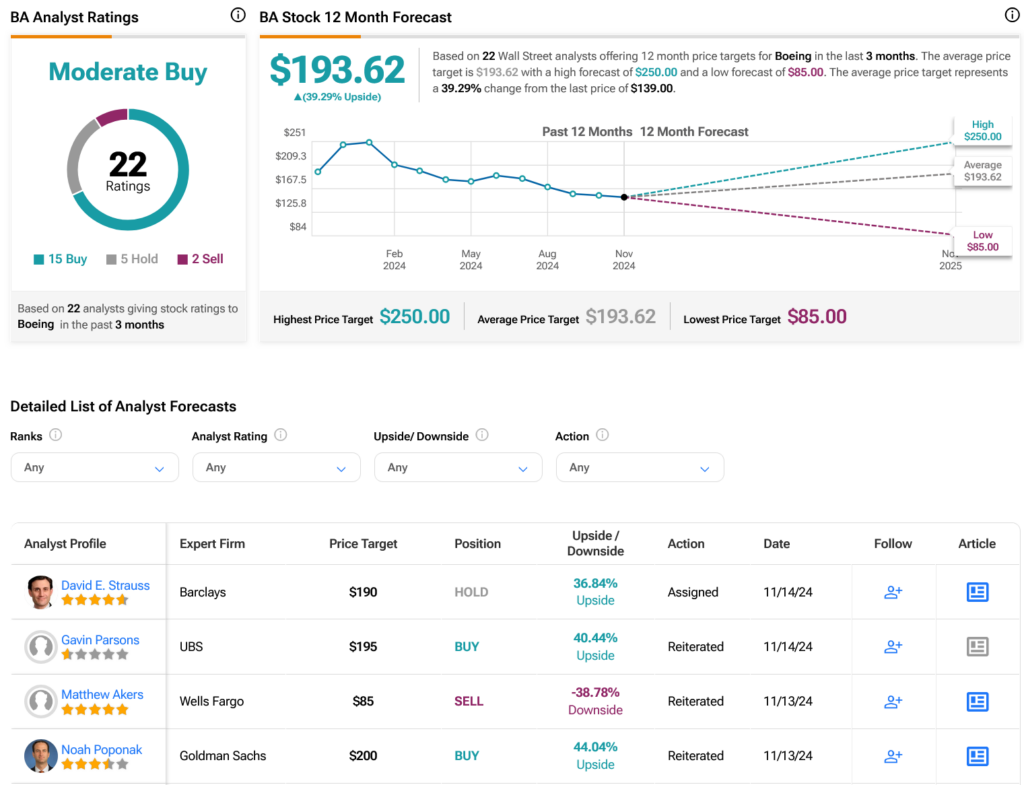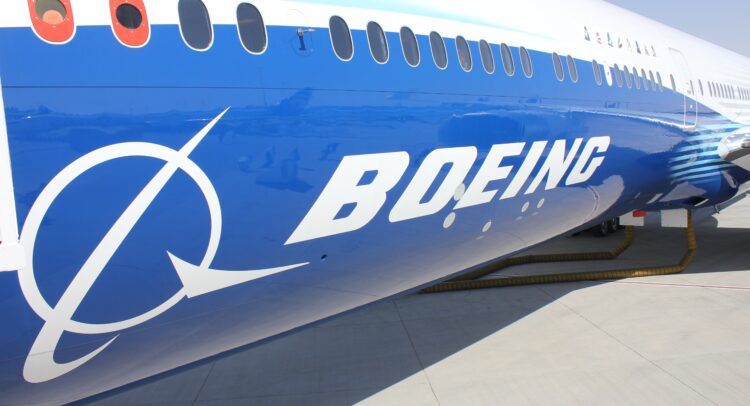Did you know that aerospace company Boeing (BA) was working on an autonomous air taxi? As it turns out, one of its divisions is working on just that, and it recently cleared one of the biggest hurdles with the Federal Aviation Administration (FAA). Boeing’s investors were less pleased, though, and shares slipped fractionally in Thursday afternoon’s trading.
Stay Ahead of the Market:
- Discover outperforming stocks and invest smarter with Top Smart Score Stocks
- Filter, analyze, and streamline your search for investment opportunities using Tipranks' Stock Screener
Boeing’s subsidiary, Wisk Aero, is actually working on said autonomous flying taxi system, and it recently managed to land a Stage 2 G-1 issue paper, according to a report from KING 5 in Seattle. The paper in question, the report noted, “…lays out airworthiness and environmental regulations,” and represents a “big milestone.”
While the vehicle is autonomous, it will not be left alone. Flights will be monitored from the ground, with staff ready to intervene as circumstances warrant. The Wisk Aero craft itself is a four-person craft with room for luggage and works as an electric vertical take-off and landing (eVTOL) aircraft. It looks to have crafts in place for the 2032 Brisbane Olympic/Paralympic Games and is working with officials in Houston, Texas.
A Pentagon Refit
Meanwhile, with the knowledge that Boeing’s military projects have not been profitable of late, it looks to improve that position by bringing in a competitor. Boeing hired Colin Miller, who previously worked with Northrop Grumman (NOC), to oversee Boeing’s Phantom Works. Miller is also a former Air Force commander, offering excellent perspective on projects that will ultimately pass muster.
Boeing is also consolidating the Phantom Works division into a single division, as it is currently distributed into several separate organizations throughout Boeing’s defense operations. The consolidation will hopefully improve efficiencies and make Boeing’s defense operations profitable again.
Is Boeing a Good Stock to Buy Right Now?
Turning to Wall Street, analysts have a Moderate Buy consensus rating on BA stock based on 15 Buys, five Holds, and two Sells assigned in the past three months, as indicated by the graphic below. After a 33.47% loss in its share price over the past year, the average BA price target of $193.62 per share implies 39.29% upside potential.










